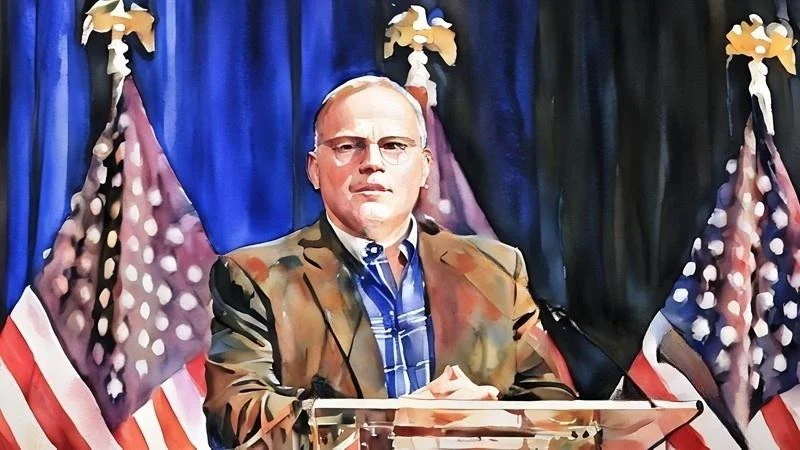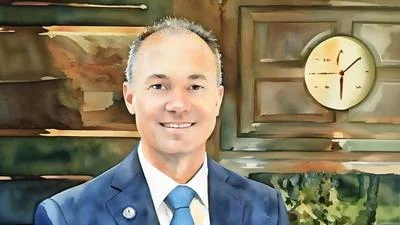Steve Deace, a conservative commentator and author known for his focus on faith and politics, brings a theological lens to the debate in the Republican party about foreign policy and religious faith. He draws a line between past unity and current division. “The right does not have a unified rubric of foreign policy,” he says, reflecting on how the post-9/11 unity fractured after “disastrous two decades” of military adventurism in the Middle East.
He notes that figures like Tucker Carlson and Ted Cruz, “two of the smartest guys in our movement,” recently devolved into “school kids” in a televised debate, revealing the divide. Deace believes the moment demands not ideology but pragmatism. “We needed...a cold-blooded pragmatist, somebody who does not have a narrative that they're trying to win, does not have an ideology they're trying to project,” he says.
In his view, President Trump fits the role, guiding the U.S. through recent Middle East tensions with “Daniel-level” wisdom. “Are we succeeding in advancing America's interest? If yes, proceed. If no, cease and desist,” Deace says, outlining what he sees as a needed P&L approach to foreign policy.
He is frustrated with those in the movement who predicted doom following U.S. support for Israel, particularly relating to the U.S. strike on Iran. “The events that transpired after the strike did not transpire as they doomsday prophesied,” he says. Rather than doubling down, Deace urges reassessment. “When you are confronted with the fact you misread a situation, do you reassess your narrative or do you double down on it?”
He defends Tucker Carlson from accusations of anti-Semitism but critiques Carlson’s theological worldview that undergirds his skepticism of Israel. “What Tucker was articulating… is actually what historical Christianity has believed,” Deace says, referring to the view that the Mosaic covenant ended at the cross and that the Church, not Israel, is now the vessel of God's covenant.
While this theology is gaining ground among young men returning to conservative churches, Deace warns against alienating them. “We want the young men back in our churches.” he says. He adds that “if we tell them they aren’t really welcome unless they believe a particular view about Israel… we’re going to turn those people into Nick Fuentes and Candace Owens followers.”
Rather than dismissing or condemning divergent theological perspectives, Deace argues for education, particularly regarding the history and threat of radicalized Islam. “They don't know that for 1,200 years there was an Islamic religion and no country called Israel, and yet Islam waged constant war against Christendom,” he says. He laments that many young people “don’t even know the differences between Sunnis and Shias,” and stresses that confronting the historical realities of Islamist movements is essential to understanding the geopolitical landscape.
His defense of Israel is theological, but also strategic. “If a Jewish nation stands up to volunteer to be a cudgel between Shia Islam, extremism, and the United States and Christendom… Praise the Lord and pass the ammunition,” he says. Deace views Israel as a bulwark of Western values in a hostile region and believes that even Christians who are skeptical of modern Israel should acknowledge its role as an ally.
He also warns against building American foreign policy solely on a narrow theology. “We cannot base all of American foreign policy… off of a particular nuanced interpretation of an end-times eschatology,” he says, urging the movement to rely on a blend of geopolitical and historical understanding rather than narrow scriptural interpretations. “We’ve got to have more grounded ideologies… [regarding] decisions that can lead to global warfare.”
Deace ultimately calls for education, humility, and unity rooted in historical truth. “History is fact, and it also lines up with the perspective of the Word of God,” he says. He hopes to create space for principled debate over performative dissent.








